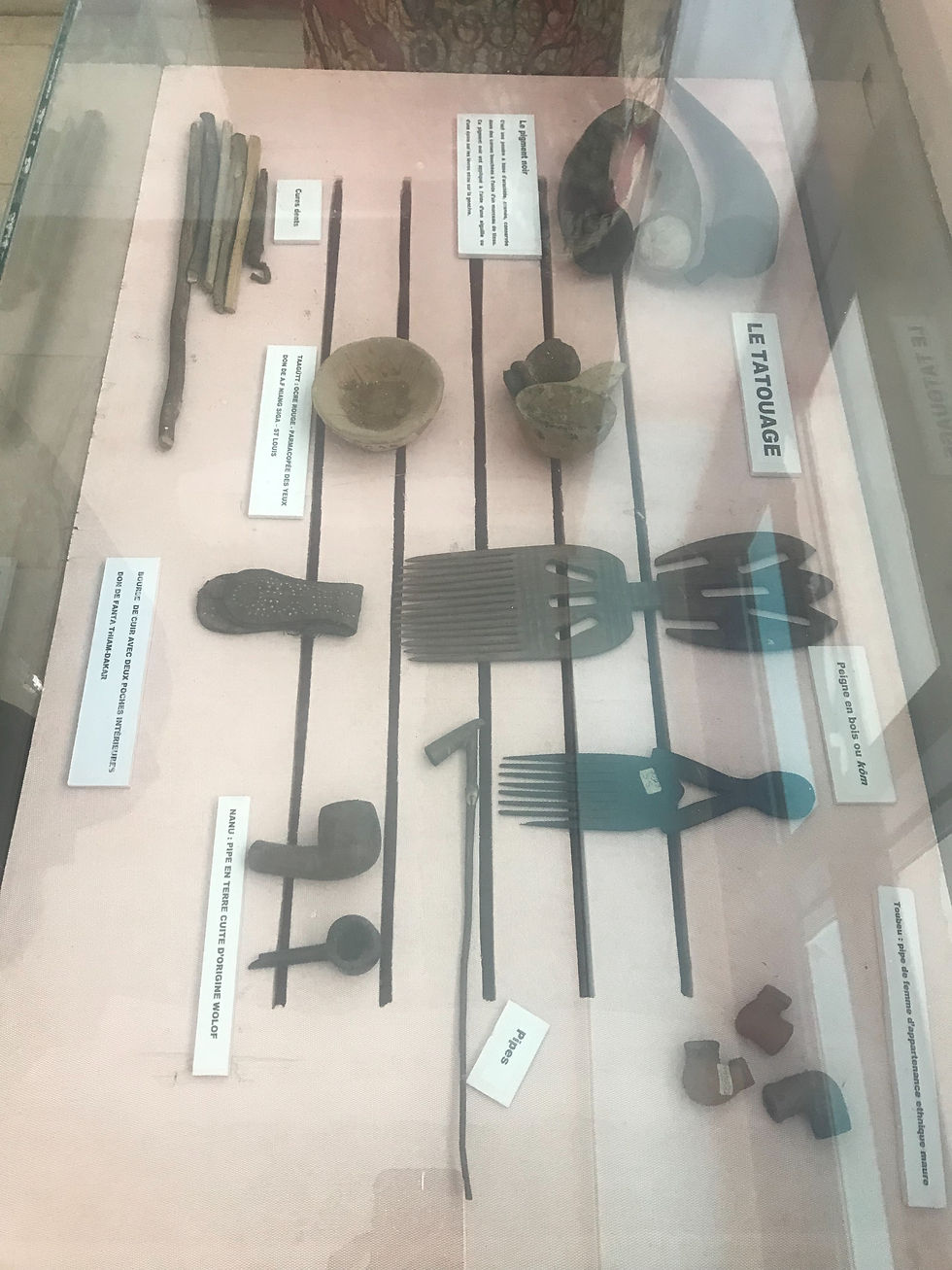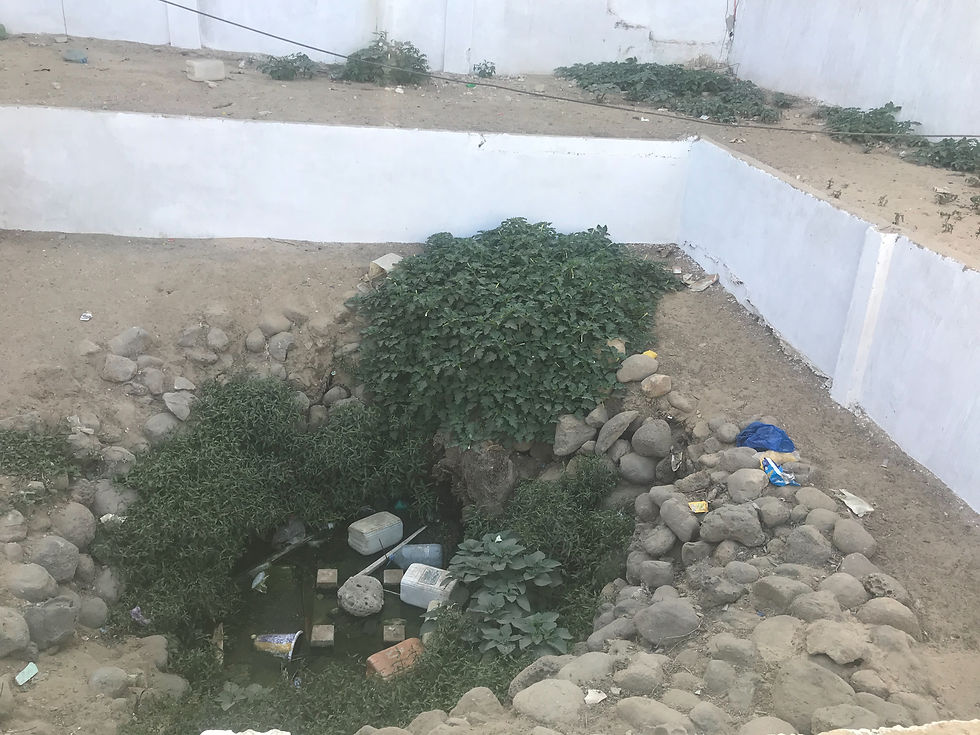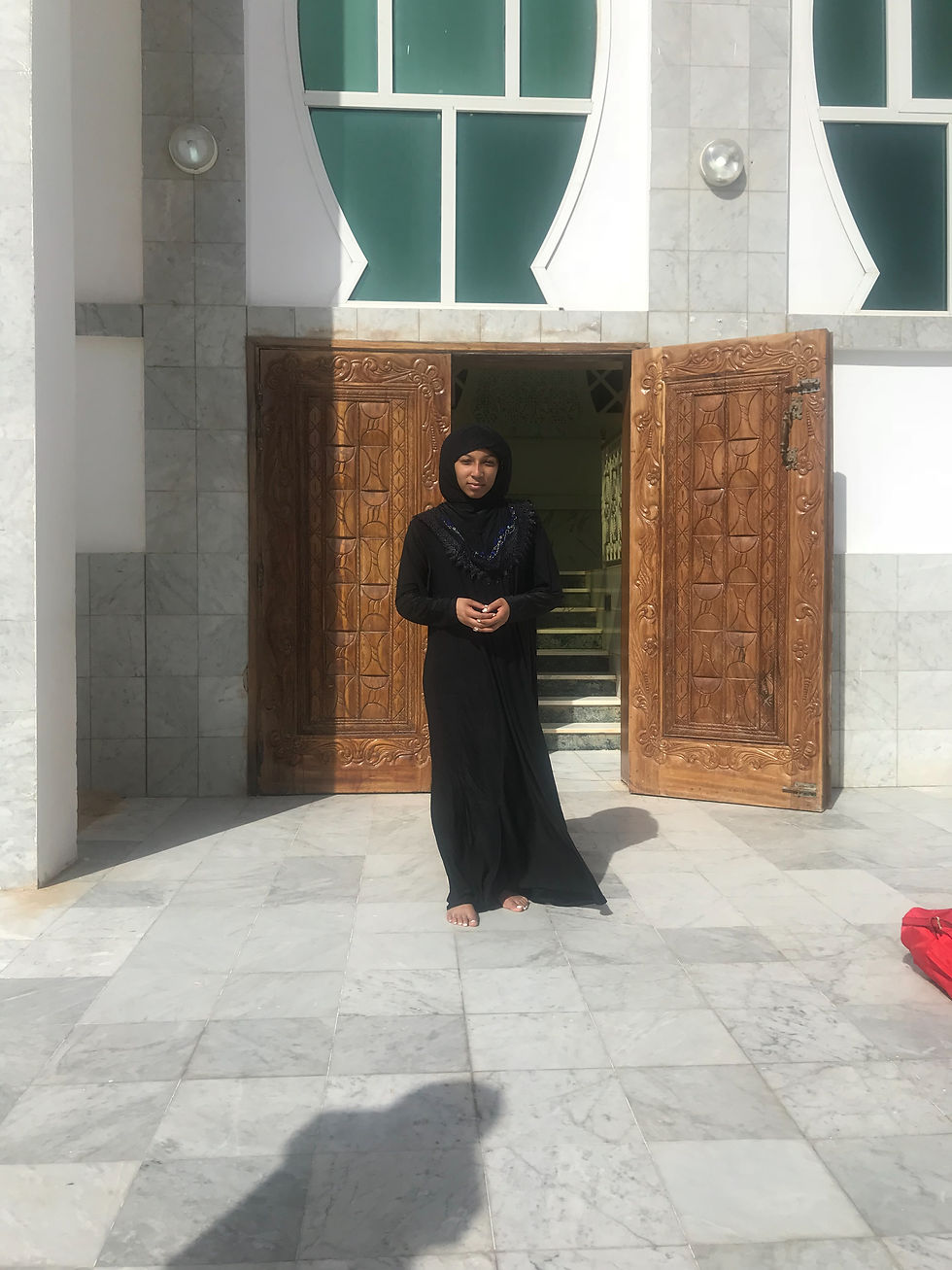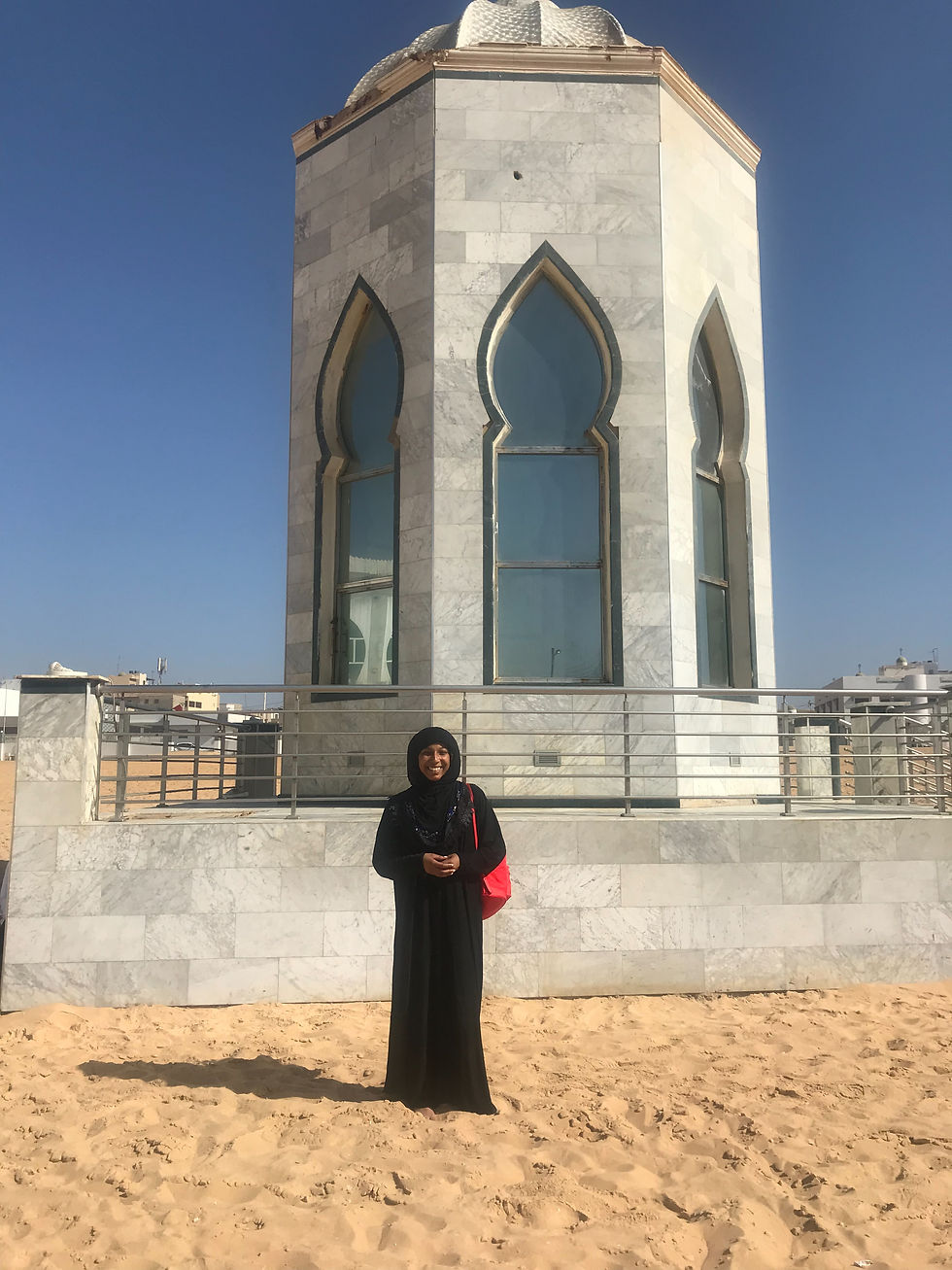Day 4&5: The Senegalese Exception and Experience
- jamilahmuhammad20

- May 11, 2018
- 8 min read
Hey guys, sorry I didn’t post yesterday, I was exhausted and going through it. The hardest thing so far about Senegal is how often everyone eats, and how much they eat in one sitting. Day 4: The Senegalese Experience I finally moved in with my host family (which I’ll get to later) and they don’t nearly as often or as much as we do. Back home I am used to eating 4 or 5 meals a day and eating large of amounts of food. For example, for breakfast I eat pancakes, French toast, eggs, bacon and maybe some potatoes, while here they will just eat a piece of break with some coffee or milk and that will last them 7 or 8 hours. My first day experiencing that was the hardest, because I was getting EXTREMELY hangry and felt as if I couldn’t control it. We also walk to and from school, and because walking is so normalized here they expect us to know how to get places when they only showed us once. For example, they walked us to school, and we are supposed to come home for lunch. So, I am trying to map out the way there so I can just reverse it trying to get back, Well…that did not go quite as we (Kidest – my roommate, and Kathleen – our neighbor) planned. We ended up in a completely different neighborhood than we wanted to be, and were LOST. The worst thing about it was I was not only STARVING at this point, but we quickly no one really spoke French but mainly Wolof (the native language here) so we couldn’t communicate. Finally a taxi driver was “kind enough” to help us get back to the school, so we could just eat there, but his nice behavior ended up being a plot on the lost Americans. He charged us 7000 UFC when it only should’ve been 1000 UFC. So imagine something costing $100 and then you pay them $700. We didn’t realize how huge of a mistake it was until all of our teachers and peers were laughing and sad for us, but hey you live and you learn. I was just happy to eat!

The Senegalese Exception The most interesting thing about Senegal, is that in America is not talked about enough, and to my perspective, it is due to the fact that it is an exception from many other African countries. All we hear and learn about in the States, are the lack of resources, civil unrest, or terroristic activity that goes on in some African countries, but for Senegal that is not so easily the case. There are five main ways that Senegal can be theorized as an exception of other countries: politically, geographically, religiously, socially and historically. The social and political aspects were the most influential to me, because to my understanding, it was the complete opposite of America. The social construct of America thrives on differences and individuality, while here in Senegal, no matter where you are, at the end of the day you will be accepted and invited, and that is due to the idea of substituting sameness with equality. Within Senegal there are many different groups of people, rather it be the Dialta or Faye or Fulani, they all live amongst once another peacefully and if you migrate to certain groups part of the land, you will become one of them. However, this ideology is rooted in equality not assimilation and in America the two can get confused. Why? I argue it is a mixture of two main ideals, which are diversity and domination. In America, we are forced to see each other’s differences because we do not look, act or think the same way. However, rather than accepting those differences and letting one be an American solely for the fact that they are in America, western ideals push a narrative that you must “be an American”. What is American? An American is the imitation and assimilation of western culture, ideals and practices. It goes far behind how you look, but is engrained in how we think. Physical appearance is a big part of it, but at the same time the same it can be argued that individualism is western along with the majority of socially constructed phobias and “-isms”. To be afraid that someone is going to be afraid that someone will come in and take your country does not exist here in Senegal, because they see you for you and not you color, socioeconomic standing or language. In America, I am Jamilah Muhammad, which would automatically be interpreted that I am foreign or exotic, African and a possible threat, but in Senegal I am just Jamilah Muhammad (and could be seen as a Fulani.)

The Woman’s Museum really pushed the same narrative that we spoke about in class. When we first got upstairs there was map that showed the major ethnic groups relative to their region, but a lot of them were intertwined and intermixed and she said they all lived peacefully amongst one another. As we walked around, we really learned a lot about the powerful African women in all aspects amongst various generations. It was amazing to see the tools they used, precolonial and colonial, to just go about their everyday lives, and you would find the same tools in an African-American museum back home. I was in awe, because to know that my ancestors really fought to keep the culture in alive (whether it be the aspects of tools, religious practices, or ceremonies) in a time and place where they were brutalized into submission, makes me appreciate and want to celebrate my culture that much more, in way that really highlights the strength of my ancestors.


After our lecture and trip to the museum, I went to the store to stock up on snacks, because I refuse to be hungry like that ever again. I came home and sat with my host family and ate dinner with them. My host family is comprised of two elders (mom and dad but more the age of my grandparents) and their grandson and nephew live with them as well. They are great and inviting and they help us with our Wolof as we help them with their English. The food was good, and the conversation was great. Papa Amadou reminds me of my poppy in the strangest sense. (For those who don’t know, I lost my poppy earlier this year). His demeanor and reactions remind me of my poppy, which to me is divine intervention, because I felt that he wouldn’t be able to see me flourish and experience this trip, but when I talk to Papa Amadou it feels as if I am talking to my poppy. It is an amazing feeling to have and I feel so blessed to have his spirit here with me.
You’ll find my #OOTD below

Blue, Yellow and White Stripped Dress (Forever 21) Reflection 2: Black Muslims – Between Tradition and Modernity In lecture today we had a very deep conversation about Islam and its relation to the Senegalese people and to other sacred religions. The first thing that stuck out to me, was that Senegal is recognized as a secular country rather than having Islam as their official religion. Originally my understanding of secularism was the absence of religion, which originally confused me, but when the professor explained it is understood here as a country that is not tied to a religion or one that treats all religions equally made more sense, and tied in with what we learned yesterday. The Islamic, as it is believed here, is taken very seriously and literally, while in the perspective of historians, the stories might be more exaggerated and it is the essence of the story that should be believed. What I think is most interesting, relating to what is believed knowledge in America, is that Islam believes, recognizes and pays homage to both Christianity and Judaism. In reality, the three all fall on a timeline and are connected, but Islam is just believed to be the ultimate and superior religion. We discussed in great detail today, that the a lot of the stories and teachings of the Islamic Mourides, can be looked at as interpretations of the Bible and Torah. I believe, in a way that they one isn’t “stealing” from the other, but much like Dr. Thiam said they were placed on Earth at different times for different groups of people with them all having the sole purpose to become closer to God or ascend to the spiritual enlightenment of Allah.

After lecture we had lunch (we made it home successfully this time) , and we met up with our Senegalese peers Bessamine and Amina. They were so great to talk to over lunch because we got some great insight on how they feel about Americans, other cultures, etc. We were explaining to them the struggles of the African-American people in America and how hard it is to just exist peacefully among people who live in ignorance and privilege without recognizing it. They explained that they thought black people were racist to Africans, which in a way was true, because we would call them dirty or make fun of their dark skin or coarse hair, or even their home countries. I explained to them, that that is the way of Western teachings and although it is no excuse for the behavior it is all we see and hear about the continent and most of us don’t do our own research to find out for ourselves.
However, we walked back to school and we went to visit Yoff (a religious community in Dakar), I felt the same way with the teachings and stories of the traditional African religious group. The story of the man wanting to feed his community and provide water for his people. He was told to place his staff or spear in the spot where the small pond was that we saw and water flowed from there for the people, and that made me think of Moses and the importance of his staff parting the Red Sea. One could argue that it is the same story, but interpreted for the people to understand and relate to. What also struck me as interesting, when we visited Yoff was the power of language. The tourist guide in the traditional African village, explained to us that they do not get the respect, recognition and funding of a lot of other religions, because there is no sacred text in association with the teachings, This is mainly due to the people of the village being illiterate and not having the means to write things down, like Christianity or Islam, because it is said to predate all of those religions and be the first. Also, a lot of the more “respected” religions are said to have collaborated with colonizers, which is why they got infrastructure and global recognition, while they did not. This made me wonder if none of the Muslims or Christians accepted colonial intervention would we look at Eastern Islam and Christianity a lot differently? And could that have been the case for some “extremist” groups here in Africa or the Middle East? You guys can let me know your thoughts and such on the subject!


Today, when we got home we relaxed as usual, and mama made a dish that I was under the impression was a lot like oatmeal, when in reality it was more like rice pudding, and in case you didn’t know I HATE RICE PUDDING. I felt really bad, but she could tell we didn’t like it. She wasn’t offended though, because she understood it was just different than what we’re used to. I hope tomorrows meals are better and I will keep you guys updated.
Check down below for my #OOTD


Today we worse a traditional Yerer Wolof which is a traditional dress in Wolof culture.
I’ll post later today with how my day was today, so we’ll be all caught up. Until tonight.
Love you guys lots
-JAM










Comments